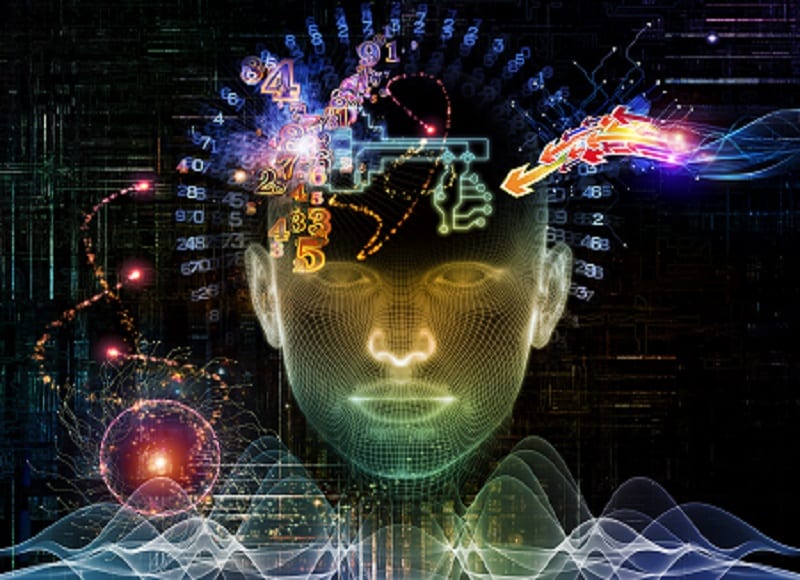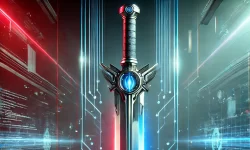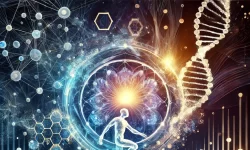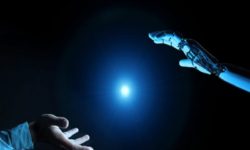Since the democratization of destruction is now a reality, should we not use new interactive tools, techniques, and immersive platforms to include everyone from across nations to secure the future of humanity?
Introduction
Humanity is at the tipping point, as the technology triggered revolution and evolution is on its way to fundamentally transform the human ecosystem across cyberspace, aquaspace, geospace, and space (CAGS). The coming clash in contested commons is expected to bring both significant risks and rewards and justices and injustices, creating enormous imbalances. There is a need for genuine change at the very core: the operating system.
Just like how computer operating systems dictate the way a computer works and serves as a basis upon which all the computer applications are built, similarly, the internet rewrote operating systems and re-defined our societal infrastructure. It is core changes that are needed to experience not only a quantum leap in progress but also to safeguard humanity from the democratization of destruction. This is especially important because when the dual use of technology may provide critical economic applications but also lead to the production of modern weapons of mass destruction on a scale that is difficult to fathom, we clearly need a security-centric operating system that can help shape, strengthen, and secure the future of humanity.
Since humans are at the center of the nature of security risks coming our way, we need an operating system that can shape the internal as well as external environments for humans: their behavior, controls, firewalls, and more. That brings us to an important question: how do we develop a security-centric operating system (SCOS) that determines our internal as well as external behavior (both constructive as well as destructive) to shape the human security ecosystem at all levels?
Acknowledging this emerging reality, Risk Group initiated a much-needed discussion on a New Operating System for Humanity with Georges van Hoegaerden on Risk Roundup.
Georges van Hoegaerden, Managing Director of The Venture Company, based in the United States participates in Risk Roundup to discuss a New Operating System For Humanity.
The Need For A New Approach
As existing and emerging technologies merge and converge to build the once unattainable imagination possible, the evolution in intelligence will create unthinkable possibilities but also bring earth-shattering security risks and challenges for the future of humanity through the democratization of destruction. Choices we now make together as conscious human agents will determine our path toward either devastating regression or the possibility for everyone across nations to thrive beyond Earth. So, how do we navigate the perfect storm of emerging security crises? How do we define a SCOS that can shape the security future of humanity?
The mechanical hierarchical security systems that served humanity over the years have now become our most significant threat to realizing our collective security. Building the required SCOS for the future of humanity requires global collaboration among individuals and entities across nations: its government, industries, organizations, and academia (NGIOA). That brings us to an important point: to manage the increasing security risk complexity, do we need to overcome old ways of thinking and adopt a new way of thinking to define, design, and develop a self-organizing security-centric operating system for the future of humanity?
Inclusion Versus Exclusion
The existing and emerging technologies and the ongoing transformation is expected to bring fundamental changes across CAGS. In the coming years, since all the systems will be re-defined and re-designed, everyone across nations will be impacted in many ways. Understandably, this will create great turmoil. In spite of that, we are repeating the same mistakes of the past in having a narrow group of people decide and determine the security for humanity. As we see today, each nation defines and designs national security in extremely narrow military terms. When dual-use technologies are re-writing the rules of information, intelligence, warfare, survival, and security, security is no longer a government affair. It is an NGIOA affair. Security is no longer about geospace security; it is about CAGS security. It is essential to understand what the consequences are of repeating this pattern of exclusion from the security equation and evaluate what security risks will emerge as a result.
To mitigate the consequences of the democratization of destruction, it is imperative that we include individuals and entities from across NGIOA in the new security-centric operating system for humanity proposed by Risk Group. Repeating patterns of exclusion will put the future of humankind at risk as the ongoing democratization of destruction will trigger security risks that will be hard to manage. Right now, we still have a window of opportunity that allows us to create an inclusive process for defining and designing our security infrastructure for the future. And clearly, the stakes are too high to have few individuals define and determine the security risks features of the much-needed security infrastructure.
It is important to note that so far, we did not have the technological capability to define, design, and develop the collective systems in the past. However, now, we are equipped with the tools and techniques to imagine our future on a global scale collectively. Instead of the masses getting sidelined from the security process that is defining the future of humanity, should we not use the new interactive tools, data science, intelligent algorithms, and immersive platforms to include everyone?
Building a security-centric operating system of inclusion through the potential of collective systems allows everyone to contribute and shape the security code of this much-needed operating system. Isn’t this a sensible way to mitigate our strategic security risks and optimize our future?
We already have proof of this concept in work in many shapes, sizes, and forms. While we at Risk Group are on a mission to collectively visualize the security risks facing humanity, there are others like The Detroit Narrative Agency, who are trying to change the potential future of Detroit by supporting community members who are excavating and creating stories that shift the overall narrative within the city towards the value of justice. And there are other initiatives focused on building a collective future using imagination, futurism, and healing narratives to tackle the complex challenges coming their way.
That brings us to an important point: unless each one of us can think about the collective consequences of our individual actions and can tie cause and effect together, the security controls do not exist for us.
What Next?
While we are still prisoners of old ways of thinking and acting, the democratization of destruction necessitates a new way of thinking to overcome the complex security challenges facing humanity. The biggest problem is that while humanity is at the tipping point, we are repeating the same mistakes of the past and letting a narrow group of people decide the future of humanity. It is essential to understand the costs of repeating the same pattern of exclusion and evaluate if we continue to operate as usual, what is at stake?
NEVER MISS ANY OF DR. PANDYA’S POSTS
Just join here for a regular update





 The Future Of 5G
The Future Of 5G